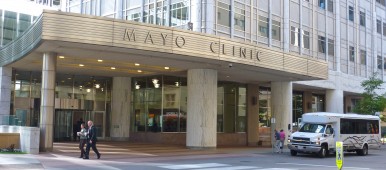
- Mediation
- Arbitration
- Court Neutrals
- Online Dispute Resolution
- Technology
- Court Decisions
- More
- Legislation
- Healthcare
- Guest Posts
- John DeGroote
- John C. Fleming
- Rick Freeman
- Professor Peter Friedman
- Honorable W. Royal Furgeson, Jr.
- James M. Gaitis
- Laura A. Kaster
- Professor John Lande
- Philip J. Loree, Jr.
- Michael McIlwrath
- F. Peter Phillips
- Professor Alan Scott Rau
- Professor Thomas J. Stipanowich
- Professor S.I. Strong
- Richard Webb
- Glen M. Wilkerson
- International arbitration
- Regulation
- Sports and Entertainment
- We’re Back!!!!Well, it’s been a while since we published and that is about to change. Since I spent much of last year becoming
 JAMS Welcomes Karl Bayer to its Panel of NeutralsJAMS, the world’s largest private alternative dispute resolution (ADR) provider, is pleased to announce that Karl Bayer
JAMS Welcomes Karl Bayer to its Panel of NeutralsJAMS, the world’s largest private alternative dispute resolution (ADR) provider, is pleased to announce that Karl Bayer Class Action Waivers in Arbitration Agreements: The Twenty-First Century Arbitration Battleground and Implications for the EU CountriesLinda S. Mullenix, Morris & Rita Atlas Chair in Advocacy at the University of Texas School of Law, has written “Class Ac
Class Action Waivers in Arbitration Agreements: The Twenty-First Century Arbitration Battleground and Implications for the EU CountriesLinda S. Mullenix, Morris & Rita Atlas Chair in Advocacy at the University of Texas School of Law, has written “Class Ac Picking the Proper Technological Tool for Problem-Solving in ArbitrationProfessor Amy J. Schmitz, John Deaver Drinko-Baker & Hostetler Chair in Law and Co-Director of the Translational Data An
Picking the Proper Technological Tool for Problem-Solving in ArbitrationProfessor Amy J. Schmitz, John Deaver Drinko-Baker & Hostetler Chair in Law and Co-Director of the Translational Data An
Recent Posts
Digital Accessibility and Disability Accommodations in Online Dispute Resolution: ODR for Everyone
Professor David Allen Larson, Senior Fellow in the Dispute Resolution Institute and John H. Faricy Professorship in Empirical Research at Mitchell Hamline School of Law, has published a thoughtful journal article titled, “Digital Accessibility and Disability Accommodations in Online Dispute Resolution: ODR for Everyone,” Ohio State Journal on Dispute Resolution, Vol. 34, No. 3, 2019.
Continue reading...SCOTX Grants Petition For Review Over Local Government Arbitration Question
On Friday, the Supreme Court of Texas agreed to consider whether the San Antonio River Authority must arbitrate a dispute related to the costs associated with a $10 million dam project.
Continue reading...Supreme Court of Guam Upholds Harris County, Texas Court’s Order Confirming Arbitration Award
In a case of first impression, the Supreme Court of Guam has upheld a Texas court’s confirmation of an arbitration award that was issued against a Guam-based business.
Continue reading...Designing and Implementing a State Court ODR System: From Disappointment to Celebration
Professor David Allen Larson, Senior Fellow in the Dispute Resolution Institute and John H. Faricy Professorship in Empirical Research at Mitchell | Hamline School of Law, has written “Designing and Implementing a State Court ODR System: From Disappointment to Celebration,” Journal of Dispute Resolution, Vol. 2019, No. 2.
Continue reading...Arbitration
In a case of first impression, the Supreme Court of Guam has upheld a Texas court’s confirmation of an arbitration award that was issued against a Guam-based business.
Continue reading...Mediation
Professor E. H. Morreim, University of Tennessee Health Science Center- College of Medicine, Department of Internal Medicine, has published a timely article entitled, In-House Conflict Resolution Processes: Health Lawyers as Problem-Solvers, The Health Lawyer 2014; 25(3): 10-14.
Continue reading...Healthcare Disputes
Bold Predictions about Health Care Reform
by Holly Hayes Marc Bard, chief innovation office in Navigant’s health care practice, and co-author of the book “Accountable Care Organizations, Your Guide to Strategy, Design, and Implementation” made six predictions about health care reform last week. The predictions are listed in the blog CommonHealth Reform and Reality and are in response to some specific changes in Massachusetts health care reform. Two predictions include: More tension in the system In today’s’ environment, for the most part, providers of care are contractually pitted against payers of care. They’re a little like dogs and cats. They’ve never gotten along terribly well for obvious reasons, and they generally didn’t mind battling each other. Now, what is being proposed in Massachusetts creates somewhat of a zero-sum game, doctor against doctor and doctors against hospitals; and that’s a less comfortable battle. And, it’s potentially going to be even less comfortable because with the ACO, there’s going to have to be more support for primary care, and if you’re operating with a fixed global payment budget, that means that the high-end providers, the high-end physicians and hospitals, are going to take the greatest haircut. That’s reality. Massachusetts medical culture will change to be more team-oriented. Eastern Massachusetts health care is physician-focused rather than system-focused. We focus on doctors, we train them, we teach them, we develop them, rather than teams. And we’re going to have to move to a much more team-oriented approach, which means we’ll have to start really valuing the role of care coordinators and other disciplines rather than putting the burden on the doctors. So I think what we’ll also see is that it’s going to affect some academic pursuits: We’re going to have to move to training more primary care doctors, and that is not something that Boston historically has focused on. In a previous post, we cited the report “Unmet Needs:Teaching Physicians to Provide Safe Patient Care” issued by the Lucian Leape Institute at the NPSF. The report concludes that “[U.S.] medical schools are not doing an adequate job of facilitating student understanding of basic knowledge and the development of skills required for the provision of safe patient care.” The report’s 12 recommendations center on three main themes: Medical schools and teaching hospitals need to create learning cultures that emphasize patient safety, model professionalism, encourage transparency, and enhance collaborative behavior. They should have zero tolerance policies for egregious disrespectful or abusive behavior. Medical schools should teach patient safety as a basic science and ensure that students develop interpersonal and communication skills through experiences working in teams with nursing, pharmacy, and other professional students. Medical schools and teaching hospitals need to launch intensive faculty development programs to enable all faculty to acquire sufficient patient safety knowledge and to develop the interpersonal skills in teamwork and collaboration that permit them to function effectively as teachers and role models for students. What are your thoughts about how we can enhance medical school training to prepare physicians for the collaboration needed for health care reform and to be partners in successful Accountable Care Organizations (ACOs)? We welcome your thoughts. Holly Hayes is a mediator at Karl Bayer, Dispute Resolution Expert where she focuses on mediation of health care disputes. Holly holds a B.A. from Southern Methodist University and a Masters in Health Administration from Duke University. She can be reached at holly@karlbayer.com.
Continue reading...Answers to Physician Questions about ACOs
by Holly Hayes This week, Medscape News posted an interview regarding physicians’ questions about ACOs (Accountable Care Organizations) with Anders M. Gilberg, senior vice president of Government Affairs, Medical Group Management Association (MGMA). The 15 questions and answers can be seen here. As the article points out, “The first voluntary ACO agreements will start on April 1 and July 1, 2012, and run for 3 years as part of the Medicare Shared Savings Program. To become an ACO participant, you may be a physician or other health professional in a group practice, a network of practices, or a partnership or joint venture with hospital. You might also participate in an ACO as an employee of a hospital.” Mr. Gilberg addresses areas of particular concern for physicians considering joining an ACO: 6. Are there aspects of ACOs that doctors need to be wary of or cautious about? Mr. Gilberg: Yes. For one, the fact that ACOs that provide a plurality of primary care services to a beneficiary are responsible for the cost of services regardless of whether they’re performed within the ACO network. That adds an element of uncertainty and risk to the program. Also, the fact that patients can opt out of sharing their health data within the ACO network poses potential problems for participating physicians. There’s a larger consideration for doctors, however. Because ACOs operate in part on a shared-savings model, they must be successful in reducing their fee-for-service costs to Medicare by certain prescribed percentages in order to benefit from the program. And even at this point, they will only receive 50 to 60 cents on the dollar, depending on their participation model. Now, if the formula for shared savings was simply limited to Part B or physician services, this would be a terrible financial deal. Doctors could very well end up as net losers, especially if they’ve incurred high start-up costs. But remember that shared savings are also calculated on Part A costs, whether expended within the ACO or outside of it. Because these are generally bigger cost drivers for Medicare than physician services, a physician-only or group practice-focused ACO that’s able to help reduce Part A costs can actually end up sharing savings with Medicare, even if in the process it does not reduce its own Part B fee-for-service costs to Medicare. One interesting financial scenario that physicians should consider is that ACOs may have to spend more on certain physician services in order to affect such matters as reducing expensive hospital emergency department visits and inpatient stays. To the extent that they can do this, doctor-led ACOs could very well end up benefiting both on the fee-for-service and the shared savings sides of the ledger. For ACOs that comprise both a physician group and an inpatient hospital, however, these calculations may become more difficult, because the hospital component will most likely find it necessary to make up for revenue that isn’t returned in the form of Medicare shared savings. See more of our ACO blogs here, here and here. We welcome your comments on the development of the ACO model. Holly Hayes is a mediator at Karl Bayer, Dispute Resolution Expert where she focuses on mediation of health care disputes. Holly holds a B.A. from Southern Methodist University and a Masters in Health Administration from Duke University. She can be reached at holly@karlbayer.com.
Continue reading...Legal Research
About Disputing
Disputing is published by Karl Bayer, a dispute resolution expert based in Austin, Texas. Articles published on Disputing aim to provide original insight and commentary around issues related to arbitration, mediation and the alternative dispute resolution industry.
To learn more about Karl and his team, or to schedule a mediation or arbitration with Karl’s live scheduling calendar, visit www.karlbayer.com.















